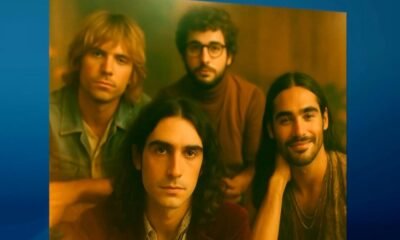Travel Guides & Articles
How Violinist Mika Nishimura Is Elevating Music Education In India
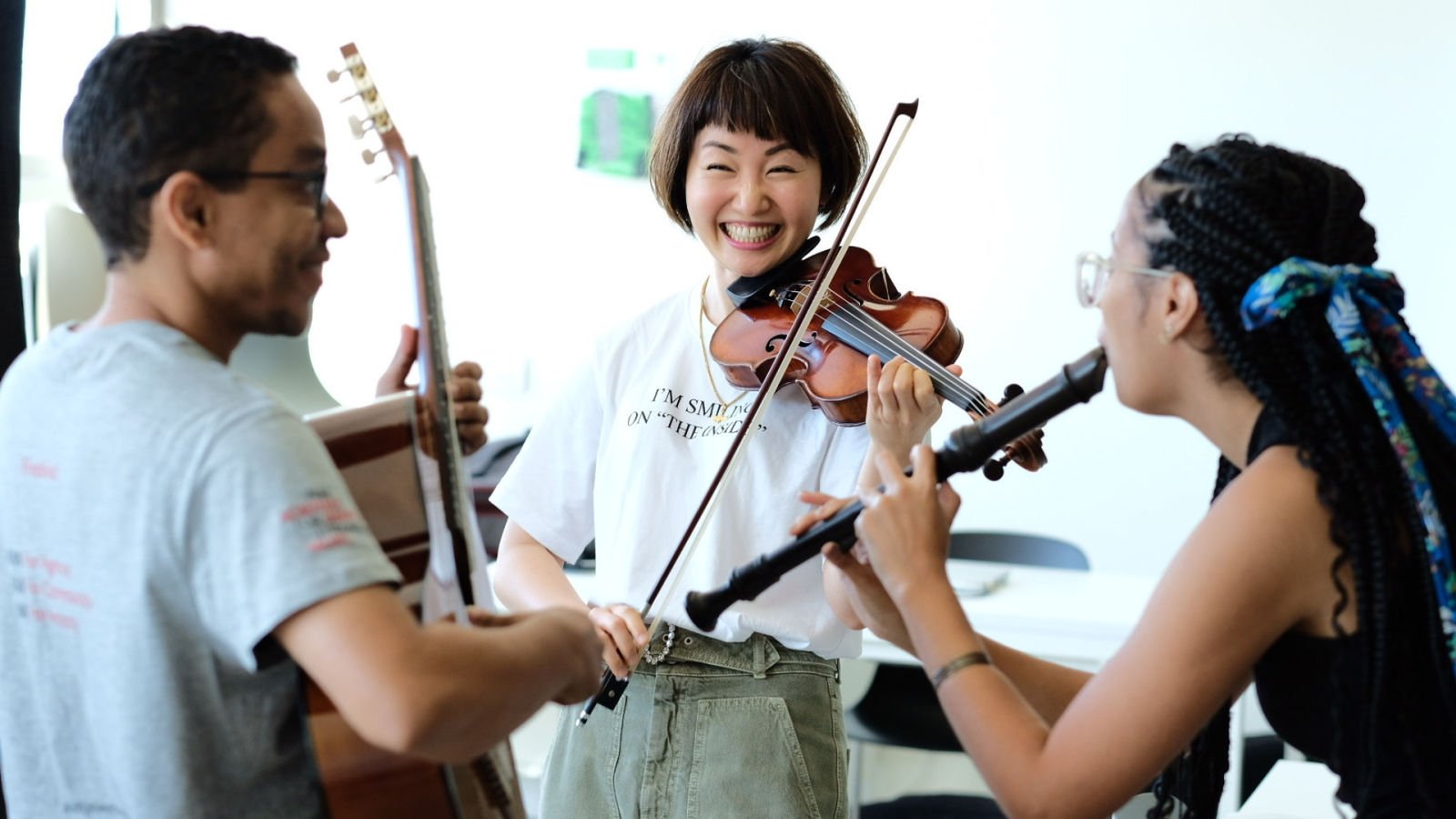
Violinist and educator Mika Nishimura, trained at prestigious institutions like the Franz Liszt Academy and the Jacobs School of Music, has spent over a decade in India reimagining music education. While her foundation lies in the rigour of Western classical training, her work with Mumbai-based NGO Muktangan shifted her focus towards collaborative, human-centred learning. This journey inspired Elevate, a multidisciplinary camp she co-founded with educator Katheryn Murillo, blending music, movement, nutrition, and mentorship to nurture confident, empathetic young leaders. She talks to Travel + Leisure India & South Asia about her vision of helping children connect across divides and believe in their own voice—on stage, in classrooms, and in life.
Excerpts From The Interview With Mika Nishimura
Team T+L India: The camp blends music, movement, nutrition, and leadership. Why did you choose this multidisciplinary approach?
Mika Nishimura: My journey as a music educator began with a strong foundation in Western classical music—trained in world-class institutions like the Franz Liszt Academy, Reina Sofia School, and the Jacobs School of Music. Most of my early experience was shaped through traditional one-on-one lessons and teacher-led group classes. While I deeply value this background, I began to feel a growing desire to create something more collaborative and human-centred.
That shift began when I started working with Muktangan, a progressive NGO in Mumbai. There, I met children from incredibly diverse backgrounds—many facing deep challenges but filled with resilience and potential. We began rethinking how music was taught. Instead of focusing only on technique, we moved towards group learning, peer support, and shared leadership. I witnessed something powerful: students started leading each other.
This transformation became the seed for Elevate—a camp designed not just to teach music, but to nurture young leaders who are grounded, expressive, and empathetic. But as we developed the camp, it became clear: in India, leadership development must go hand-in-hand with basic wellbeing. Many children, even of the same age, come with drastically different levels of energy, focus, and physical readiness—often due to lack of nutrition or opportunities for movement.
That’s why Elevate goes beyond music. It includes movement to energise the body, nutrition education to build strength and awareness, and mentorship to nurture inner confidence. Without proper nutrition, children don’t have the strength to move.
Team T+L India: What is the most rewarding part about teaching music and leadership to children from diverse backgrounds?
Mika Nishimura: This is the beauty and the strength of India—its diversity. But when I first came here over 10 years ago and brought children from different backgrounds together for a music class, some refused to even share a music stand. That moment stayed with me. I truly believe music can connect people across any divide.
To me, leadership begins with empathy. To lead, you must understand and care about others—not as categories, but as human beings. Music, movement, and food are universal. We all eat. We all hum in the shower. We all move to a rhythm. These shared human experiences help children see beyond difference. This is how we shape a new kind of leader—and a better future.
But we’ve also witnessed how many children, simply because of the circumstances they were born into—their families, their neighbourhoods—are destined for a certain path, or sometimes not even to attend school. Seeing these injustices made us realise we needed to act to help change that reality.
Team T+L India: In what ways does your Japanese heritage influence the way you approach teaching and creating music in India?
Mika Nishimura: These days, people often joke that I’m more Indian than Japanese—and maybe they’re right! But my Japanese roots will always give me a love for precision and attention to detail…sometimes so much that it irritates my students (we laugh about it together!). That care for the small things helps me design learning experiences with thoughtfulness and structure.
At the same time, I’ve fallen in love with the energy of Indian children. They ask questions freely, they aren’t shy to say, “I don’t understand, please explain again,” and they bring so much curiosity into the room.
Over the years, I think I’ve absorbed some of that energy myself! I’m also the loudest voice in the classroom, full of love and passion. This mix of Japanese discipline and Indian vibrancy allows me to create learning spaces with structure, but also with freedom born from the soul—where children feel safe to express themselves fully, in their own way.
Team T+L India: Which elements from Indian culture have influenced your own creative expression since moving here?
Mika Nishimura:Since moving here, I’ve been deeply impressed by how beautiful Indian music and culture truly are. At the same time, I love how open and creative people are—ready to collaborate, explore, and welcome influences from anywhere in the world, whether it’s fashion, art, or ideas. In music, that openness gives you the freedom to play in your own way, without feeling pressured to be the same as everyone else. Indian people genuinely appreciate individuality. That’s the beauty of this country—they accept you for who you are, and they also celebrate the uniqueness I bring from Japan. When these two cultures meet, something even more unique and beautiful is born.
Team T+L India: Can you share a moment during the camp preparations that truly moved you?
Mika Nishimura: One of my students once told me, “Thank you, Mika. After learning the violin with you, I no longer need maths tuition.” She had been at the bottom of her class in maths—but after practising music, she began understanding how to scaffold problems and think logically. Now, she’s at the top of her class.
That’s when I realised: everything is connected. The way athletes, musicians, and leaders train their minds—it’s all about focus, reflection, and structure. Nutrition, too, is not a separate topic. It’s the energy source. Without it, how can a child learn or move?
Team T+L India: How has travel-from Japan to Spain, Israel, and India-influenced your perspective on cultural fusion in the arts?
Mika Nishimura: Travelling with my violin has taught me that “home” can be anywhere. When I arrived in a new country, I didn’t always speak the language—but the moment I started to play, people would smile, listen, and connect. That’s when I understood: music creates its own home.
Whether it was playing in a quiet corner in Europe, rehearsing with strangers who became friends in the Middle East, or sharing songs with children in India, each place has left a mark on my soul. These moments showed me that cultural fusion isn’t just in the arts—it’s in the way people open their hearts to each other when we create together.
Team T+L India: Thinking ahead, how do you envision expanding initiatives like this in other Asian cities, and what impact do you hope to create through music education in the region?
Mika Nishimura: This is just the beginning. Even before our first Elevate camp finishes, we’ve already received offers from other countries to collaborate on future editions. We’ve started planning the next chapter, and our vision is to keep Elevate growing—not just in size, but in depth and reach.
We’d love to collaborate with more schools and organisations across Mumbai and beyond. If you believe in the power of music, movement, nutrition, and mentorship to shape future leaders, we’re here. Let’s keep growing this community together.
Related: Unearthing India’s Oldest Musical Roots In Gwalior, The City Of Tansen
Note:
The information in this article is accurate as of the date of publication.
We may earn an affiliate commission when you shop through links on our site.
Written By
Travel Guides & Articles
Good News! South India To Get A Bullet Train Connecting These 4 Major Cities, Announces Andhra CM
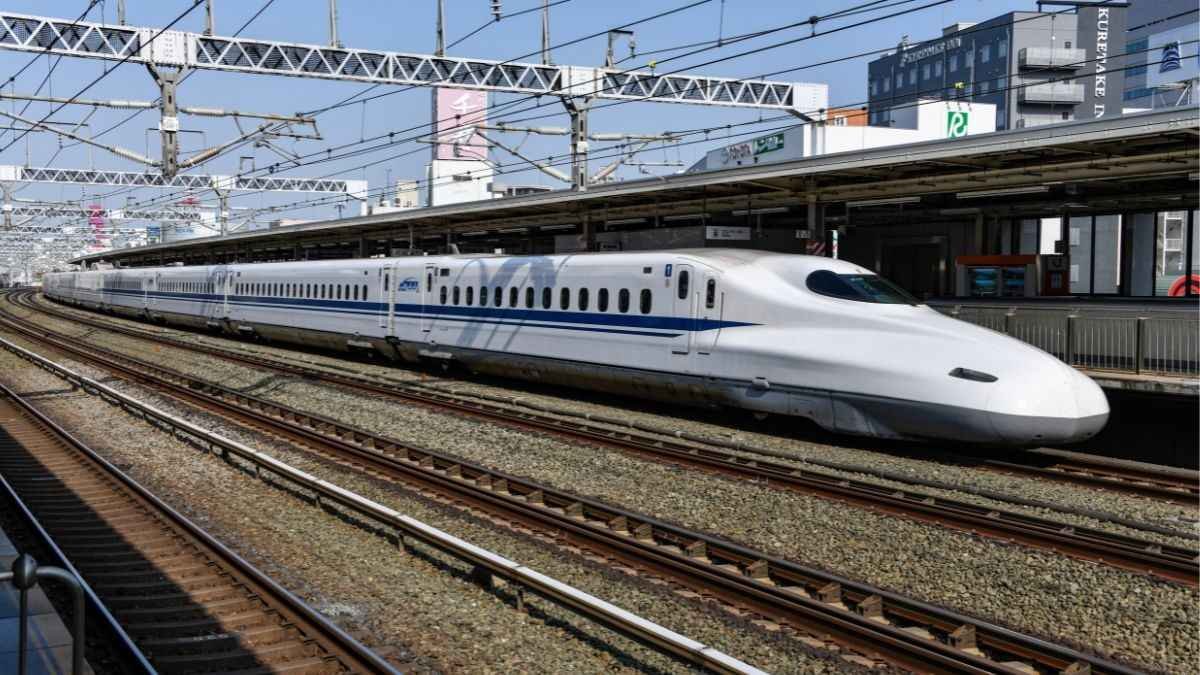
Good news! India is now gearing up to welcome a bullet train in South India. It will connect four major cities and serve nearly five crore people across the region. Andhra Pradesh Chief Minister Chandrababu Naidu announced this major project on Saturday during the India Food Manufacturing Summit. Here’s what we know.
A New Bullet Train Project In South India
India’s first-ever bullet train project between Mumbai and Ahmedabad is already progressing in full swing and is expected to become operational next year. But in a recent development, one more bullet train might be added to the country. As per a report by Times Now, Andhra Pradesh Chief Minister Chandrababu Naidu addressed the India Food Manufacturing Summit on Saturday. He announced that a bullet train is soon going to come to South India.
This major infrastructure project will connect Hyderabad, Chennai, Amravati and Bengaluru. Furthermore, the CM announced that road infrastructure will be upgraded to international standards. These large-scale infrastructure plans aim to transform the region into a major logistical hub.
Also Read: India’s First Bullet Train Update: Stations On Mumbai-Ahmedabad Corridor Nearing Completion
The Project Aimed To Boost Connectivity & Tourism
Reportedly, this bullet train will cater to a population of nearly five crore people across these four major South Indian cities. Chief Minister Chandrababu Naidu also added that a survey has been ordered so people can understand how logistics and transport will improve once the bullet train materialises.
The announcement comes at a significant time as India is already working on its first bullet train project. The Mumbai-Ahmedabad corridor, which spans over 500 km, will feature 12 world-class stations. With this new project announced for South India, connecting Hyderabad, Amravati, Chennai and Bengaluru, travel time between these cities is expected to be cut drastically. Moreover, the project also aims to boost trade, manufacturing and tourism. It will make commuting much easier for millions of passengers.
The South India bullet train project marks a major move in upgrading the country’s transportation system. Surveys are still underway, but if this vision comes to life, the high-speed train will seriously redefine how people travel in the South. What do you think of this initiative? Let us know.
Cover Image Courtesy: Canva Pro/ David Dibert (Representative Image)
For more such snackable content, interesting discoveries and the latest updates on food, travel and experiences in your city, download the Curly Tales App. Download HERE.
First Published: August 31, 2025 12:08 PM
Travel Guides & Articles
Thomas Cook India Partners with Queensland Tourism to Boost Travel
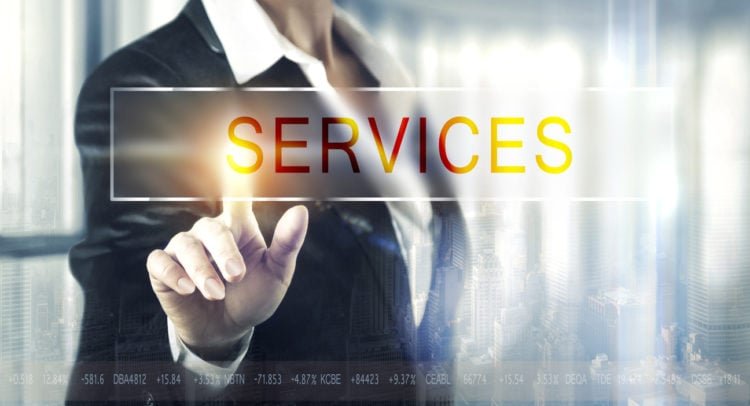
Elevate Your Investing Strategy:
- Take advantage of TipRanks Premium at 50% off! Unlock powerful investing tools, advanced data, and expert analyst insights to help you invest with confidence.
Thomas Cook (India) Limited ( (IN:THOMASCOOK) ) has provided an update.
Thomas Cook (India) Limited and SOTC Travel have signed a long-term strategic MOU with Queensland Tourism to boost travel from India to Queensland, Australia. This collaboration aims to enhance Queensland’s visibility and inspire year-round visitation from India by leveraging Thomas Cook India’s digital platforms and retail network. The MOU will focus on content creation, education, training programs, and joint marketing efforts, positioning Queensland as an ideal destination for various traveler segments. This initiative is expected to expand Thomas Cook’s product portfolio and showcase Queensland’s unique experiences, appealing to multi-generational families, millennials, GenZ, and MICE groups.
More about Thomas Cook (India) Limited
Thomas Cook (India) Limited is a leading omnichannel travel services company in India, offering a range of travel-related services. The company, along with its group company SOTC Travel, focuses on providing leisure, MICE (Meetings, Incentives, Conferences, and Exhibitions), B-leisure, and sports tourism services across India’s metro, mini-metro, and Tier 2 and 3 markets.
Average Trading Volume: 101,683
Technical Sentiment Signal: Buy
Current Market Cap: 83.52B INR
Learn more about THOMASCOOK stock on TipRanks’ Stock Analysis page.
Travel Guides & Articles
PM Modi-Xi Jinping meeting: India and China to resume direct flights after five-year hiatus
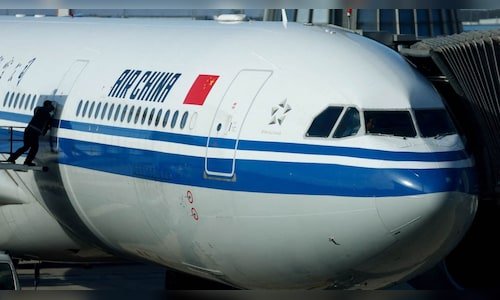
Air travel between the two countries was halted in early 2020 due to the COVID-19 pandemic and further disrupted following the deadly border clash in the Galwan Valley that year. Since then, passengers and cargo have been rerouted via third countries such as Thailand, Singapore, and Hong Kong, adding substantial time and cost to travel and trade.
Indian Prime Minister Narendra Modi confirmed the move on Saturday, a day beforer the Shanghai Cooperation Organisation (SCO) Summit and his meeting with Chinese President Xi Jinping, stating that both governments had agreed to restart direct flight services as relations between the two nations showed signs of improvement. “We are reopening one of Asia’s most important economic corridors,” Modi said, according to reports, adding that the decision would benefit businesses, students, and families across both countries.
Sharing my remarks during meeting with President Xi Jinping. https://t.co/pw1OAMBWdc
— Narendra Modi (@narendramodi) August 31, 2025
Also read | PM Modi meets Xi Jinping in Tianjin as SCO Summit gets underway
Before the suspension, traffic between India and China was considerable. Before the Pandemic in the financial year 2019, over 816,000 passengers travelled between the two nations, with Indian carriers such as Air India and IndiGo operating hundreds of monthly flights alongside Chinese airlines. Cargo movement was also significant, with nearly 30,000 tonnes shipped annually — higher than the cargo volume between India and the US.
The resumption of direct flights is expected to revitalise trade and tourism, as well as support Indian and Chinese companies with firm business ties. For students and professionals who previously relied on complex transit routes, the resumption of direct services will simplify travel and reduce costs.
No official schedule has yet been released, but aviation authorities in both countries are expected to approve routes in the coming weeks. Industry experts predict that carriers will initially resume limited services before expanding based on demand.
The move comes amid broader efforts to stabilise ties between New Delhi and Beijing, with high-level diplomatic engagements resuming and trade volumes gradually recovering. While tensions remain, the restoration of direct air links is being seen as a positive step toward normalising relations.
-
Tools & Platforms3 weeks ago
Building Trust in Military AI Starts with Opening the Black Box – War on the Rocks
-

 Ethics & Policy1 month ago
Ethics & Policy1 month agoSDAIA Supports Saudi Arabia’s Leadership in Shaping Global AI Ethics, Policy, and Research – وكالة الأنباء السعودية
-

 Events & Conferences3 months ago
Events & Conferences3 months agoJourney to 1000 models: Scaling Instagram’s recommendation system
-

 Business2 days ago
Business2 days agoThe Guardian view on Trump and the Fed: independence is no substitute for accountability | Editorial
-

 Jobs & Careers2 months ago
Jobs & Careers2 months agoMumbai-based Perplexity Alternative Has 60k+ Users Without Funding
-

 Funding & Business2 months ago
Funding & Business2 months agoKayak and Expedia race to build AI travel agents that turn social posts into itineraries
-

 Education2 months ago
Education2 months agoVEX Robotics launches AI-powered classroom robotics system
-

 Podcasts & Talks2 months ago
Podcasts & Talks2 months agoHappy 4th of July! 🎆 Made with Veo 3 in Gemini
-

 Podcasts & Talks2 months ago
Podcasts & Talks2 months agoOpenAI 🤝 @teamganassi
-

 Mergers & Acquisitions2 months ago
Mergers & Acquisitions2 months agoDonald Trump suggests US government review subsidies to Elon Musk’s companies










